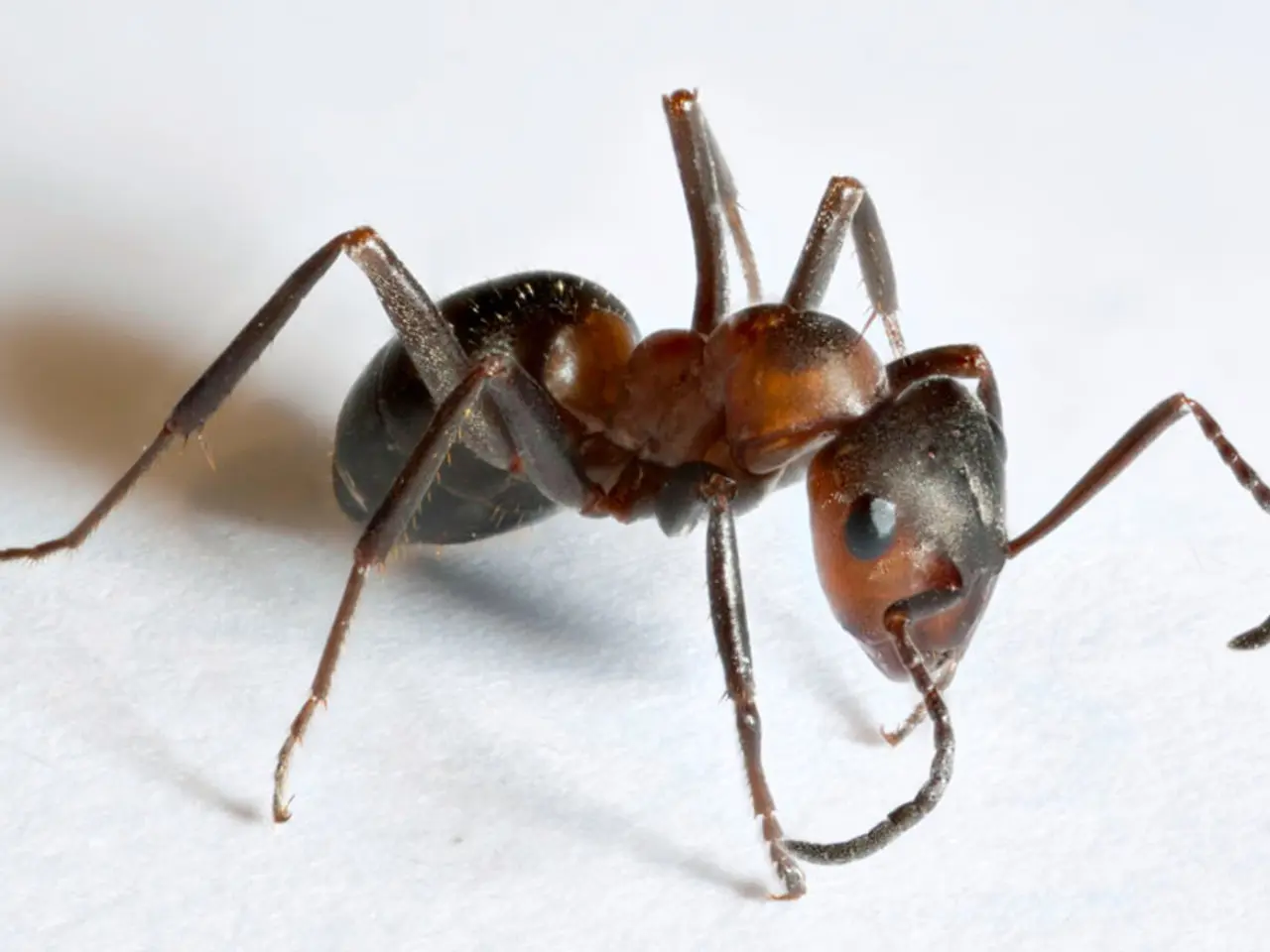Expedient Methods for Ant Eradication
In the United Kingdom, there are more than 30 species of ants, with several found in gardens. One of the most common is the black ant, Lasius niger, while another is the yellow meadow ant, Lasius flavus.
Ants play an important role in the garden ecosystem, serving as a food source for many species, including birds and amphibians. However, they can become a nuisance when they enter homes, especially if a source of sugary food is easily available.
Fortunately, there are several eco-friendly methods to deter ants effectively without the use of harmful chemicals.
Natural Essential Oils
Using essential oils such as peppermint, clove, citrus, tea tree, and citrus oils can be an effective solution. These oils disrupt ant scent trails and repel them. You can apply these oils via spray bottles or cotton balls at ant entry points and common areas.
Kitchen Ingredients
Kitchen ingredients like coffee grounds, cinnamon, and lemon juice are also natural deterrents. Ants tend to avoid these substances and can be strategically placed to block their paths.
Vinegar or Lemon Oil Solutions
Vinegar or lemon oil solutions can be used to clean surfaces and confuse ants, helping to eliminate pheromone trails indoors.
Diatomaceous Earth
Diatomaceous earth, a natural abrasive powder, causes dehydration in ants upon contact but needs to be reapplied after rain.
Borax Baits
Borax mixed with sugar or peanut butter can act as a bait to eliminate entire colonies, but it requires careful placement to avoid exposure to pets and children.
Plant-Based Commercial Sprays
Non-toxic commercial sprays formulated with plant-based ingredients like peppermint oil or diatomaceous earth are also effective and safe for use around pets and children once dry.
In summary, these methods offer environmentally friendly, non-toxic ways to deter ants effectively without harmful chemicals. It's essential to remember that ants are never harmful to humans, children, or pets.
However, ants can compromise the rootball of a plant if they build a nest in a plant pot, causing wilting. They can also 'farm' aphids for their sweet-tasting honeydew and may disturb aphid predators to maintain large numbers of aphids on plants, potentially causing plant damage. Regular watering of plants can discourage ants from nesting in plant pots.
Red ants, in the Myrmica genus, can bite and cause a mild sting, but are rarely found in gardens. Ants eat small insects and other invertebrates, plant sap, fruit, and aphid honeydew.
Ants are social insects in the Hymenoptera order, which also includes bees and wasps, and they can be found in gardens, sometimes nesting in plant pots, compost bins, and lawns.
Companion planting, a technique often used in home-and-garden settings, could potentially discourage ants from nesting in certain plants. Certain plants, such as garlic, chives, and marigolds, are known to repel ants and other pests.
Lifestyle choices, such as regular watering of plants and the careful management of sugary substances indoors, can also help prevent ants from entering homes, providing fewer incentives for these insects to invade.




